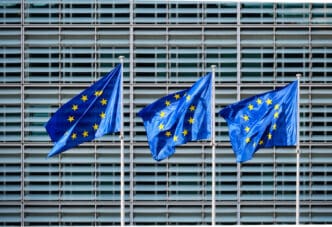The European Union has announced a postponement of its planned retaliatory tariffs on American goods, including whiskey, pending further negotiations with the United States. Initially set to begin in phases on April 1, these countermeasures will now take effect in full on April 13, potentially impacting $28 billion worth of American exports. This decision comes in response to the U.S. imposition of 25% tariffs on steel and aluminum imports earlier this month.
President Donald Trump is poised to announce new reciprocal tariffs on global imports starting April 2. As negotiations continue, U.S. distillers remain hopeful that a devastating 50% tariff on whiskey exports can be avoided. EU Trade Commissioner Maros Sefcovic has emphasized ongoing dialogue while preparing to adjust responses to U.S. actions if necessary.
The EU’s countermeasures, originally planned in two phases, included an initial set of tariffs on American whiskey, motorboats, and motorcycles. The second phase, which was scheduled for April 13, targeted additional goods such as beer, poultry, beef, and produce, including soybeans, tomatoes, and raspberries. Now, both phases will coincide on April 13, providing additional time for discussions with the U.S. administration, according to European Commission spokesperson Olof Gill.
President Trump has labeled the impending announcement on April 2 as “Liberation Day in America,” signaling a broad application of new tariffs on goods arriving in the U.S. from countries around the world. While details remain sparse, the potential for higher tariffs on products such as lumber, autos, and copper has left global economies on edge. Trump has openly criticized the EU, describing its policies as “hostile and abusive” in a recent Truth Social post, further alleging that the EU was formed to exploit the United States.
Experts, however, point out that the EU was established with U.S. assistance to stabilize and secure Western Europe. Analysts from TD Cowen suggest the issue is not whether the EU will face higher tariffs, but how significant they will be. Trump’s policy will also consider non-tariff measures, such as value-added and digital services taxes, imposed by many EU member states.
EU Trade Commissioner Sefcovic expressed optimism about continued engagement with the U.S., highlighting a strategic approach as tariff deliberations unfold in Washington. Meanwhile, White House Press Secretary Karoline Leavitt remarked that the delay indicates countries are taking President Trump’s stance seriously, reaffirming his commitment to protecting American workers and families.
The Bottom Line
This delay in retaliatory tariffs presents a temporary reprieve for American exporters, particularly those in the whiskey industry, providing a window for diplomatic negotiations. The stakes are high as both the EU and the U.S. prepare to navigate a complex landscape of tariffs, with significant implications for global trade dynamics.
For American consumers and businesses, the evolving tariff developments could affect prices and availability of imported goods, potentially impacting supply chains and consumer costs. The international trade environment remains uncertain, with the potential for escalated tariffs influencing economic stability and growth prospects worldwide.







